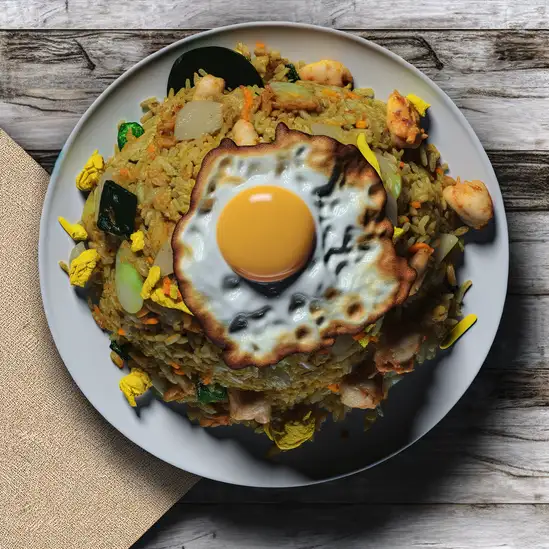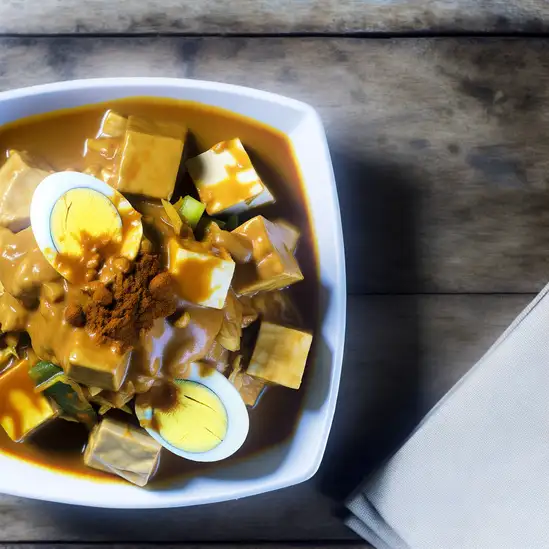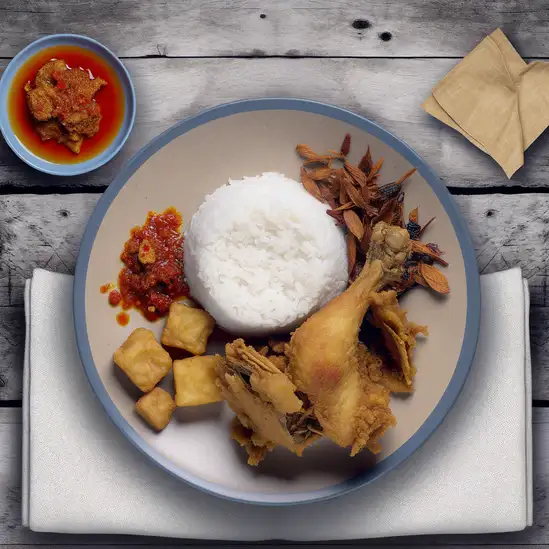


If you ever find yourself craving a breath of fresh mountain air mixed with the cheerful buzz of a lively town,Batu in Indonesia is where you want to be. Nestled high in East Java’s cool highlands,Batu feels like a cozy retreat from the tropical heat,with misty mornings that wrap the landscape in a soft,cool embrace. Walking through its streets,you’ll hear the gentle chatter of locals,the clinking of coffee cups,and the occasional laughter from children playing nearby. The scent of fresh pine mingles with the sweet aroma of ripe apples and cloves,a reminder that this place is as much about nature as it is about community. What really makes Batu special is its warm,welcoming spirit. The city pulses with a blend of traditional Javanese culture and a touch of modern charm. You can wander through vibrant markets where vendors call out their wares—colorful fruits,handmade crafts,and spices that fill the air with tantalizing scents. Don’t miss trying the local apple cider or sampling street food like bakso (meatball soup) that’s rich and comforting,perfect after a day exploring. Batu’s character shines brightest in its balance of adventure and relaxation. Whether you’re hiking up to the cool waterfalls,cycling through tea plantations,or simply sipping a cup of coffee while watching the sunset paint the sky in shades of pink and orange,there’s a peaceful rhythm here that invites you to slow down and savor every moment. It’s a place that feels like a warm hug from nature and culture alike.
The information on this page is currently being reviewed by Tripkliq and should be used as a guide only
Eng word: Hello
Eng pronunciation: Ha-lo
Local language: Halo
Eng word: Goodbye
Eng pronunciation: Soo-geng tin-dak
Local language: Sugeng tindak
Eng word: Thank you
Eng pronunciation: Ma-toor noo-woon
Local language: Matur nuwun
Eng word: How much
Eng pronunciation: Pin-ten
Local language: Pinten
Eng word: Toilet
Eng pronunciation: Ka-mar man-dee
Local language: Kamar mandi
Eng word: Help me
Eng pronunciation: Too-loong a-koo
Local language: Tulung aku
Eng word: Yes
Eng pronunciation: Ing-gih
Local language: Inggih
Eng word: No
Eng pronunciation: O-ra
Local language: Ora
Eng word: Excuse me
Eng pronunciation: Noo-woon se-woo
Local language: Nuwun sewu
Batu, located in East Java, Indonesia, was originally a small village known for its cool climate and fertile soil, making it an ideal place for agriculture and horticulture.
During the Dutch colonial period, Batu became a popular retreat for Dutch settlers due to its pleasant climate and scenic beauty. Many colonial-style villas and buildings from this era still stand today.
Batu has long been known as an agricultural hub, particularly for its apple orchards. The city is often referred to as the 'Apple City' of Indonesia, and visitors can enjoy fresh apples and other local produce.
In the early 2000s, Batu transformed from a primarily agricultural town into a bustling tourist destination, thanks to its natural beauty, cool climate, and the development of various attractions.
Jatim Park, a popular theme park in Batu, opened in 2001. It offers a mix of educational and recreational activities, making it a favorite destination for families and tourists.
Batu Night Spectacular (BNS) is a night-time amusement park that opened in 2008. It features a variety of rides, games, and light shows, providing entertainment for visitors after dark.
Coban Rondo Waterfall is one of Batu's natural attractions. The waterfall is surrounded by lush greenery and offers a serene escape for nature lovers and hikers.
Selecta Recreational Park, established in 1930, is one of the oldest tourist attractions in Batu. It features beautiful flower gardens, swimming pools, and various recreational facilities.
The Batu Flower Festival is an annual event that showcases the city's rich horticultural heritage. The festival features vibrant flower parades, exhibitions, and competitions.
In Batu, the most common Power Adaptor is Type C, Type F.



Indonesian fried rice, often cooked with a mix of spices, vegetables, and proteins like chicken or shrimp, and served with a fried egg on top.

A salad of boiled vegetables, hard-boiled eggs, and tofu, topped with a creamy peanut sauce.

Smashed fried chicken served with sambal (spicy chili paste), rice, and fresh vegetables, known for its bold flavors.

A traditional fruit salad made with a mix of fresh fruits and a spicy, tangy dressing made from tamarind, chili, and palm sugar.

Fermented soybean cake that is a staple protein source in Indonesian cuisine, often fried or used in various dishes.

A popular Indonesian meatball soup made from finely ground beef mixed with tapioca flour, served in a savory broth with noodles and vegetables.

Skewered and grilled meat, typically served with a rich peanut sauce, often made with chicken or beef.
Bali feels like stepping into a vibrant dream where every corner pulses with life and warmth. From the moment you arrive,there’s this unmistakable energy—part spiritual,part playful—that wraps around you like a soft,tropical breeze. Imagine waking up to the gentle rustle of palm leaves and the distant sound of waves crashing against volcanic black sand beaches. The air carries a mix of frangipani blossoms and salty sea spray,instantly grounding you in the island’s natural beauty.
What really makes Bali special is its rich culture woven into everyday life. You’ll see locals in colorful sarongs offering flowers at temple steps,hear the rhythmic beat of gamelan music drifting through the air,and catch glimpses of intricate wood carvings and vibrant paintings in small artisan shops. The island’s spirituality isn’t just something you observe—it’s something you feel,a quiet presence that invites you to slow down and connect.
And then there’s the food—oh,the food! Freshly grilled satay,fragrant nasi campur bursting with spices,and tropical fruits so sweet they almost taste like candy. Whether you’re dining in a bustling market or a cliffside café overlooking the ocean,every bite feels like a celebration of Bali’s rich flavors and traditions. Honestly,Bali isn’t just a place you visit; it’s a place that stays with you,long after you’ve left.
If you ever find yourself wandering through Yogyakarta,you’ll immediately notice a rhythm that feels both lively and laid-back,like the city is humming a gentle,inviting tune. It’s a place where ancient traditions and youthful energy collide in the most beautiful way. As you stroll down Malioboro Street,the air is thick with the scent of sizzling satay and sweet jasmine from roadside stalls,while the chatter of locals bargaining and the distant beat of gamelan music create a vibrant soundtrack. The city’s heart beats in its art and culture—every corner seems to hold a story,from the intricate batik workshops to the majestic temples of Borobudur and Prambanan just a short ride away.
Yogyakarta’s charm lies in its warmth and authenticity. The people here are incredibly welcoming,often eager to share their crafts,stories,or a cup of strong Javanese coffee. You can feel the city’s deep respect for its heritage,yet it’s also a hub for creative souls,with street art splashed across walls and indie cafes buzzing with young artists and thinkers. The sunsets here are something else—casting a golden glow over the terracotta rooftops and ancient palaces,inviting you to pause and soak it all in.
Whether you’re wandering through the Sultan’s Palace,tasting gudeg (a sweet jackfruit stew) at a local warung,or simply watching the world go by from a cozy café,Yogyakarta wraps you in a sense of belonging. It’s a city that doesn’t just ask you to visit but to stay a little longer,to explore deeper,and to fall in love with its soul.
If you find yourself wandering through Kota Administrasi Jakarta Pusat,you’ll immediately notice the pulse of a city that’s both historic and buzzing with modern energy. It’s a place where colonial-era buildings stand shoulder to shoulder with sleek skyscrapers,creating a fascinating blend of old and new. Walking down the streets,you can almost hear the echoes of history mingling with the chatter of office workers and street vendors. The air carries a mix of aromas—from the rich,spicy scent of street food stalls grilling satay to the faint,comforting smell of freshly brewed kopi from tiny warungs tucked in corners.
What really makes Jakarta Pusat special is its vibrant character. It’s the heart of the city’s administrative and cultural life,so you’ll find a lively mix of people—government officials,artists,students,and families—all weaving their stories into the urban fabric. The bustling markets,like Pasar Baru,invite you to haggle over colorful textiles and local snacks,while nearby museums and galleries offer a quiet retreat into Indonesia’s rich heritage.
There’s a rhythm here that’s both fast-paced and inviting. Whether you’re sipping a sweet es cendol under the shade of a tree in Merdeka Square or catching the golden light reflecting off the National Monument at dusk,Jakarta Pusat feels alive in a way that’s deeply human and endlessly fascinating. It’s a city that invites you to slow down,look around,and soak in the layers of life unfolding all at once.
Surabaya pulses with an energy that’s both vibrant and welcoming,a city where history and modern life dance side by side. As you wander through its bustling streets,you’ll catch the scent of sizzling satay mingling with the salty breeze from the nearby harbor. The city hums with the chatter of locals bargaining in lively markets,the clatter of motorbikes weaving through traffic,and the distant call of street vendors selling fresh tropical fruits. It’s a place where every corner tells a story—from colonial-era buildings standing proudly alongside sleek skyscrapers to colorful murals that splash life onto old walls.
What really makes Surabaya special is its character:tough yet warm,a city that’s seen its share of history but never lost its heart. The people here are fiercely proud and incredibly friendly,always ready to share a smile or a recommendation for the best local warung. Dive into the food scene and you’ll find yourself savoring rich,spicy flavors—like the famous rawon,a dark beef soup that’s both comforting and bold,or the sweet,sticky lontong balap that fills the air with fragrant spices.
Evenings in Surabaya have their own magic. The city lights flicker on,and the streets fill with the sounds of gamelan music drifting from cultural performances or the laughter spilling out of cozy cafes. Whether you’re exploring the historic old town or simply sipping kopi on a street corner,Surabaya invites you to slow down,soak in its layers,and feel the heartbeat of a city that’s alive in every sense.
Imagine stepping into a place where the ocean breeze carries the scent of salt and frangipani,and the rhythm of traditional gamelan music hums softly in the background. That’s Lombok for you—a vibrant island that feels both alive and laid-back at the same time. Unlike its flashier neighbor Bali,Lombok has this raw,untouched charm that invites you to slow down and really soak in the moment. The beaches here aren’t just pretty; they’re vast stretches of powdery white sand meeting turquoise waves that seem to whisper stories of ancient fishermen and island life.
Walking through the local markets,you’ll hear the lively chatter of vendors selling fresh spices,tropical fruits,and handwoven textiles. The air is thick with the aroma of grilled satay and sweet coconut,tempting you to try every bite. The Sasak people,with their warm smiles and rich traditions,add a deep cultural layer to the island’s character. You might catch a glimpse of their intricate weaving or hear tales of their unique ceremonies,which feel like a bridge between past and present.
What really stays with you about Lombok is its balance—between adventure and tranquility,nature and culture. Whether you’re hiking up Mount Rinjani’s misty slopes,diving into vibrant coral reefs,or simply sipping a fresh coconut by a quiet beach,there’s a genuine sense of connection here. It’s a place that doesn’t just fill your camera roll but leaves a quiet imprint on your heart.
If you ever find yourself craving a place where the ocean breeze carries the scent of sizzling street food and the hum of lively markets fills the air,Makassar should be at the top of your list. This city pulses with a laid-back energy that feels both vibrant and welcoming,like a friend inviting you to slow down and savor the moment. Walking along the waterfront,you’ll catch glimpses of traditional wooden phinisi boats bobbing gently,their sails catching the golden light of sunset,while fishermen call out to one another in a melodic rhythm that feels timeless.
Makassar’s streets are a feast for the senses. The aroma of grilled seafood—freshly caught and seasoned with local spices—wafts from warungs lining the alleys,tempting you to try coto Makassar,a rich,aromatic beef soup that locals swear by. The city’s mix of Bugis and Makassarese cultures shines through in its colorful markets,where vibrant textiles,handcrafted jewelry,and lively banter create a tapestry of daily life that’s both authentic and inviting.
What really makes Makassar stand out is its blend of old and new. You can explore centuries-old forts and mosques,then hop over to a bustling café where young creatives gather,blending tradition with modern flair. It’s a place where every corner tells a story,and every meal feels like a celebration. Trust me,Makassar isn’t just a stopover—it’s a place that stays with you long after you’ve left.
Scammers may sell counterfeit tickets to popular attractions like Jatim Park or Batu Secret Zoo, leaving tourists unable to enter upon arrival.
Scammers may approach tourists claiming to collect donations for a local charity or cause, but the money is pocketed instead.
Tourists renting motorbikes may be accused of causing pre-existing damage to the vehicle, forcing them to pay for repairs or lose their deposit.
Some shops near tourist areas may inflate prices for souvenirs, especially if they notice the buyer is a foreigner or unfamiliar with local pricing.
Some taxi drivers or private car services may charge tourists significantly higher rates than normal, especially if the fare is not agreed upon beforehand.
Some food vendors near tourist hotspots may charge tourists significantly more than locals for the same items, especially if prices are not displayed.
Individuals posing as tour guides may offer their services but provide little value or incorrect information, while charging high fees.
Indonesia has very strict drug laws, and Batu is no exception. The possession, use, or trafficking of illegal drugs can result in severe penalties, including long prison sentences and even the death penalty. Tourists should avoid any involvement with illegal drugs and be aware that even small quantities can lead to serious legal consequences.
In Batu, Indonesia, smoking is generally allowed in public spaces, but there are restrictions in certain areas such as schools, hospitals, and public transportation. Many restaurants and cafes have designated smoking areas. It is advisable to look for 'No Smoking' signs and adhere to local regulations to avoid fines.
Vaping is subject to similar regulations as smoking in Batu. It is allowed in most public spaces but restricted in specific areas like schools, hospitals, and public transportation. Tourists should look for designated vaping areas and follow local guidelines to avoid penalties.
What are other people saying about Batu?
Recent Social posts about Batu
There is nothing to show you for now.